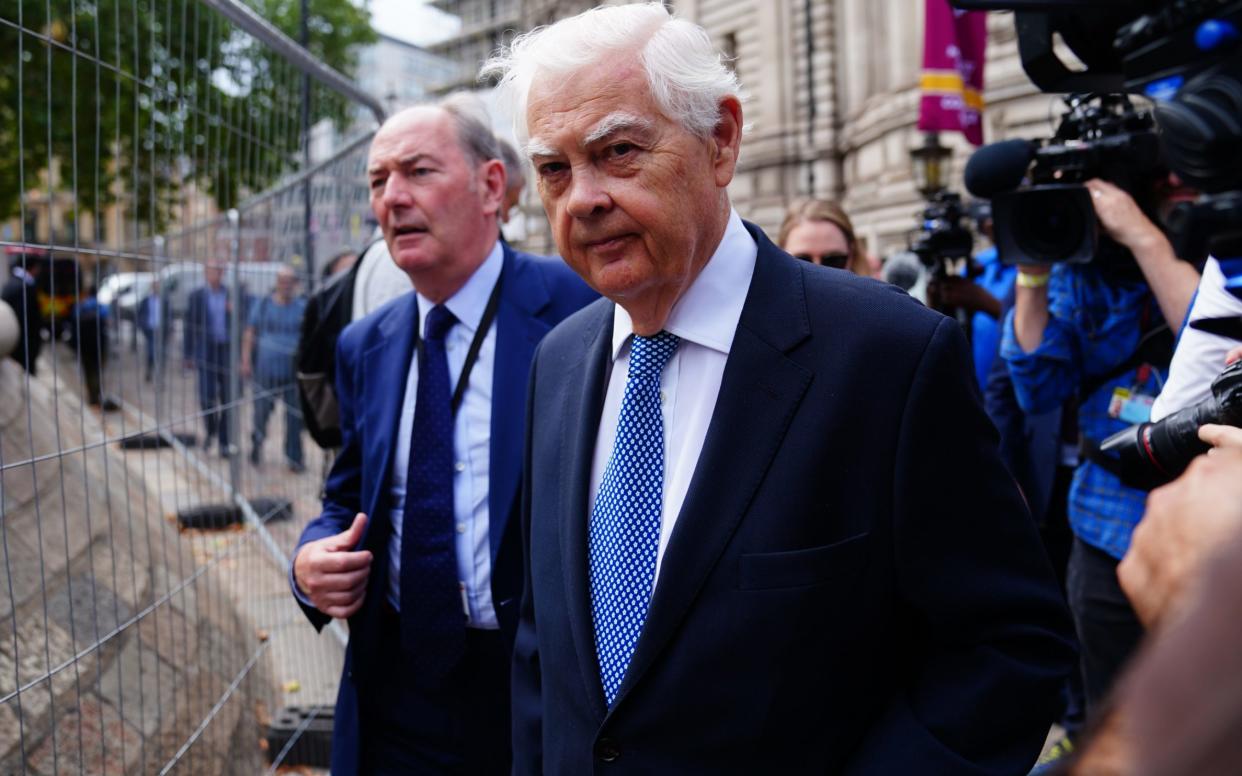Cut income tax not IHT to revive Tory fortunes, Lamont tells Sunak

- Oops!Something went wrong.Please try again later.
- Oops!Something went wrong.Please try again later.
- Oops!Something went wrong.Please try again later.
Lord Lamont, whose budget helped Sir John Major win the 1992 election, has said Rishi Sunak should prioritise cutting income tax over inheritance tax to revive Tory fortunes.
The former chancellor, whose tax-cutting budget that year introduced the 20 per cent rate on income, said raising thresholds would maximise the number of voters who would benefit ahead of the general election next year.
Income tax thresholds were frozen by Mr Sunak in April 2021 in an aim to balance the vast spending during the Covid pandemic, with Jeremy Hunt, the current Chancellor, extending that freeze until 2028.
Lord Lamont’s giveaway budget in March 1992, in which he lowered the basic rate of income tax from 25 per cent to 20, was widely seen as framing Sir John’s successful campaign, which saw him defeat Labour’s Neil Kinnock against the odds.
His intervention comes amid a growing battle within the Conservative Party, with some MPs demanding that Mr Hunt use his Budget on March 6 to abolish inheritance tax as a political move that would create a clearer dividing line with Labour.
Lord Lamont, however, warned that axing or cutting that tax would benefit a smaller number of people, given that only 4 per cent of estates pay the levy compared to the nation’s 31 million income taxpayers. He said that he “did not buy” the argument that inheritance tax was universally hated.
“The largest number of people should benefit from whatever is possible,” he told the Telegraph, adding that the Budget should be presented as “relief” for the high price paid by workers in the higher taxes required to fund pandemic bailouts.
“My priority would be [raising] income tax thresholds. They affect the most people. I think you want to give some relief to people who have paid the price and have had to pay for some of the measures that were introduced during the pandemic.
“The reason the tax burden is high is because we had a lot of expenditure during the pandemic that was then magnified by interest rates and caught us in a tax trap.
“It’s the public in general who have paid the price. You would normally expect thresholds to go up with inflation. I think the average person would like to see a little light at the end of the tunnel.
“I am not unsympathetic to inheritance tax cuts, but it benefits a small number of people. I don’t really buy the argument that it’s much hated by everyone.”
It comes as new data showed Mr Sunak is facing the bleakest economic backdrop to any election in more than three decades as businesses and households reel from the cost of living crisis and high interest rates.
The economy is expected to grow by just 0.7pc next year, according to the Office for Budget Responsibility. This is worse than the 1.6pc growth recorded in 2019, 2.7 per cent in 2017 and 2.2 per cent in 2015, when the Conservatives successfully held on to power.
Lord Clarke, another former chancellor, urged caution, saying Mr Hunt and Mr Sunak should make a “very careful study” of the public finances and state of the economy before deciding whether to go ahead with tax cuts.
“The first thing you have to do in any Budget is to have regard to the national interest and need to get ourselves out of the present economic crisis back to a healthy economy in two or three years’ time,” the former Chancellor, who served under Sir John when the Conservatives suffered a landslide loss to Labour in 1997, told The Telegraph.
“Calls from my Right-wing friends that you borrow or print money to win voters are unwise.”
Asked whether he believed Mr Hunt should go ahead with tax cuts in March, Lord Clarke replied: “Is it appropriate? He will have to make a judgment, but he will have to bear in mind that we have a very big debt problem. We have a colossal level of debt with interest payments. It is a huge problem.
“If people think that you have lost control and you are not tackling that debt problem, you will cause great financial problems. I am not suggesting he will repeat the Liz Truss experiment. She gave us ample warning of the effects you have if you have a serious debt crisis.
“The only chance to be re-elected is if people think Rishi Sunak and Jeremy Hunt have restored the Conservative reputation for competent management of the economy and they look like responsible people who will take us back to the sort of growth and economic security that we are used to in this country.”

